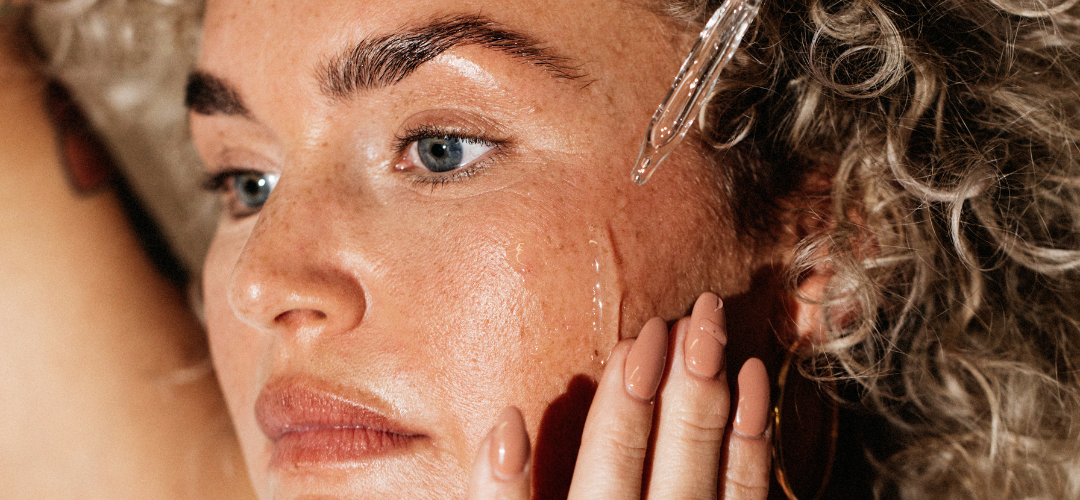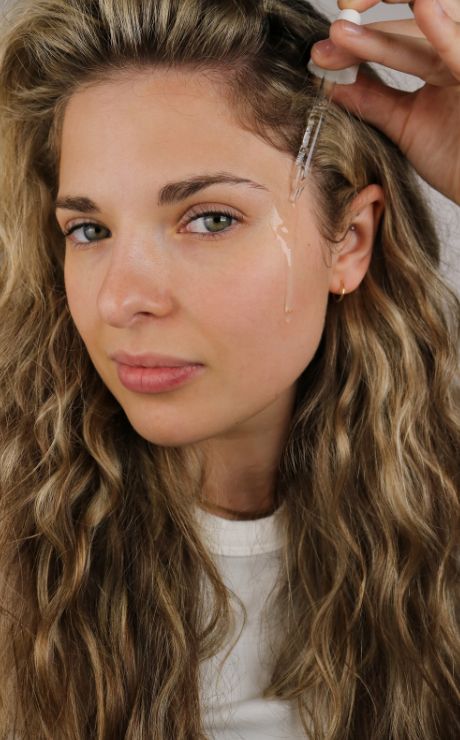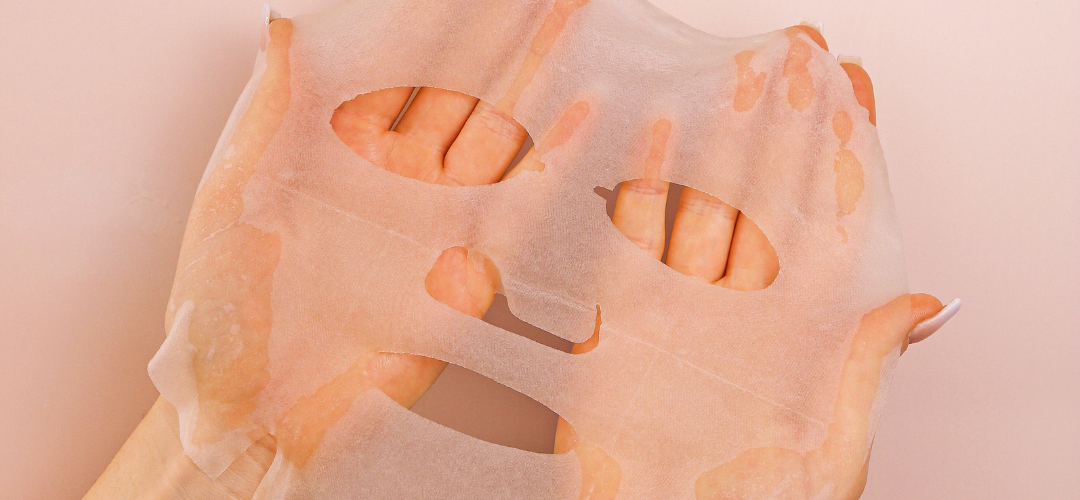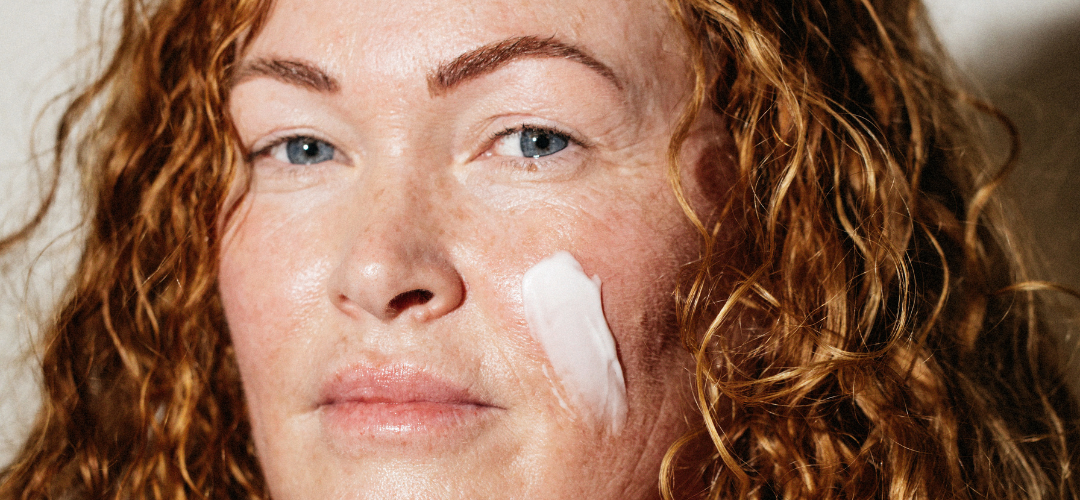
Why your skin barrier matters and how to repair damage
You’ve probably heard the words “skin barrier” being tossed around quite a bit lately, and if you’re curious about the hype, you aren’t the only one. Skin barrier repair has become an increasingly popular skincare focus this year, and we couldn’t be happier about it! You may be completely unaware of the potential damage you are doing to your skin, though the longer it goes untreated, the more difficult repair can be. Focussing your routine on barrier repairing products and weeding out tired exfoliants and harsh peels can create the soft, youthful and glowing skin you’ve always dreamed of.
What is my skin barrier and what does it do?
Let’s break down just what your skin barrier is, and why its function is crucial to your skin. Your skin is made up of several layers, the outermost layer called the stratum corneum, often described as a brick wall, is made up of your skin's toughest cells, including lipids, ceramides, and keratin. It guards your skin, the largest organ on your body (yes, that’s right!) from unwanted pathogens, environmental damage, air pollution, and more. What is just as important, is what the skin barrier keeps inside your skin. Without it, the water inside your body would escape and evaporate, leaving you completely dehydrated. This can create a dull complexion, the potential for sagging skin, overall dry skin symptoms, and itchiness.
How do I know if I have a broken skin barrier?
Dehydrated skin can lead to flakes, redness, acne, irritation or rawness, skin conditions such as eczema and psoriasis, and yes - even oily skin types can suffer from a broken skin barrier!
What causes a damaged skin barrier?
A combination of environmental factors as well as skin care mishaps are generally responsible for weakening the acid mantle and barrier of our skin. Certain things are out of our control, such as temperature (too humid or too dry), environment (allergens, irritants and pollutants), genetic factors, and oftentimes stress. However, dermatologists agree that the most destructive habits often lie in our skincare routines. The most common are: overexposure to the sun and a lack of SPF, using harsh chemical peels too often, grainy exfoliants, over cleansing, and an overuse of active ingredient serums.
Repairing your skin barrier:
Our skin is somewhat capable of taking care of itself through self regulated oil production, pH balance, and of course, a healthy skin barrier. When too many new, or unnecessary products are introduced to the skin at once (and too frequently), it is natural that problems will start to occur. When repairing your skin barrier, the most beneficial thing you can do is remove ALL exfoliants and active ingredient products temporarily, and go back to the basics. By basics, we mean a gentle cleanser, a hydrating serum, and a repairing face cream. This should be practised for at least 2 weeks, with retinoid treatments and exfoliants being reintroduced slowly, one by one for optimal skincare. Think of your skin as a living ecosystem, with essential nutrients and sebum (naturally occurring facial oils) protecting your microbiome and truly keeping your skin looking “alive”, for lack of a better term!
*When these things are missing from your stratum corneum, your exfoliants and active ingredients have nothing in excess to sweep away. What happens next, is that these products begin disrupting your “brick wall”, and are essentially punching through thin air removing anything on the skin. This includes good bacteria, essential fatty acids, any available water, and essential oil. Major skincare faux paw.
Besides being the #1 aging factor on the planet, an over exposure to UV rays is one of the leading causes of barrier damage, and for the most part, is totally within your control. Even during the cloudiest of days, the sun’s rays are more than capable of causing extreme skin damage without the protection of a good SPF product. Your SPF should be minimum SPF 30, and should be broad spectrum, meant to protect your skin from harmful UVA (ultraviolet A radiation) and UVB (ultraviolet B radiation) rays. UVB rays are the stronger of the two and can cause sunburns and most skin cancers.
Exfoliating can be a huge benefit to your skin, as it stimulates lymphatic drainage, clears your skin of dead skin cells, and promotes cell turnover. What is important to keep in mind is that over exfoliating can be destructive to the skin barrier with over use. Exfoliate no more than 3 times a week maximum. Note that physical exfoliants (grains, granules, salts, and others) as well as BHA and AHA leave on or peel products are all classified as exfoliants, even if they don’t have a physical grain!
Be mindful of your cleansing routine. Over cleansing can be just as detrimental as over exfoliating, as the product ends up stripping essential nutrients and natural oils from the skin, leaving you tight, dry, and dehydrated. Many people with oily prone skin may experience even more oil production from their skin due to over cleansing. We recommend using a cream based cleanser rather than flash foaming cleansers, which can be overly stripping to the skin and remove too much essential sebum and good bacteria. Unless you have unmanageable oily skin when you wake up in the morning, cleansing once in the evening is ideal for optimal skin health.
Retinol is one of the top contenders when it comes to anti-aging and collagen stimulation, since it is able to target multiple layers of the skin for clinical-like results. Due to the potency and capacity of this active ingredient, it is important to use it as directed to avoid any weakened skin barrier. When first starting a retinol product, it is important to start off very slow. We recommend applying this 1-2 times a week for at least 1 week, gradually increasing your usage to allow the skin time to acclimate to this level of cell turnover. Applying a retinol product every night, right away, may contribute to what is called “purging”: when the skin has a temporary reaction to a new active ingredient. It is often displayed as temporary sporadic acne, redness, and dryness. Slowly implementing this product into your routine allows you to harness all the amazing benefits of retinol, without any side effects or dry skin. Because retinol also exhibits similar effects to those of exfoliants, it is recommended that retinol use and exfoliant use be split up in your weekly routine. This is what is now commonly referred to as skin cycling.
The bottom line:
Keeping a healthy skin barrier keeps your skin hydrated, and in turn allows this organ to self regulate, which can help curb several different skincare concerns in the process. Your skin barrier is your body’s frontline defence against everything the environment can throw at you. Keeping it healthy is much more than just a cosmetic concern!




Leave a comment
This site is protected by hCaptcha and the hCaptcha Privacy Policy and Terms of Service apply.